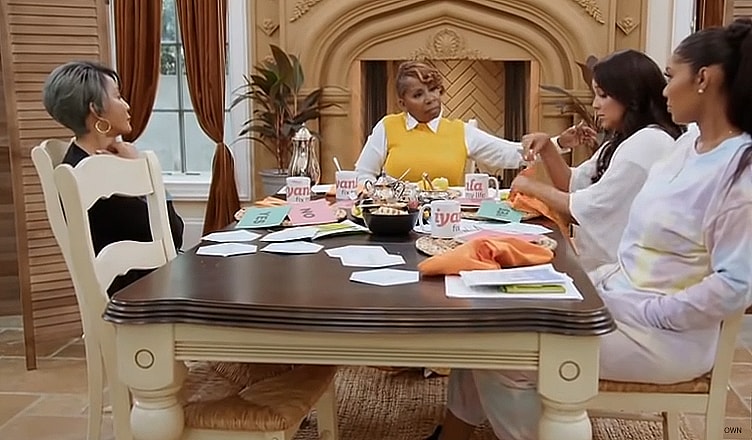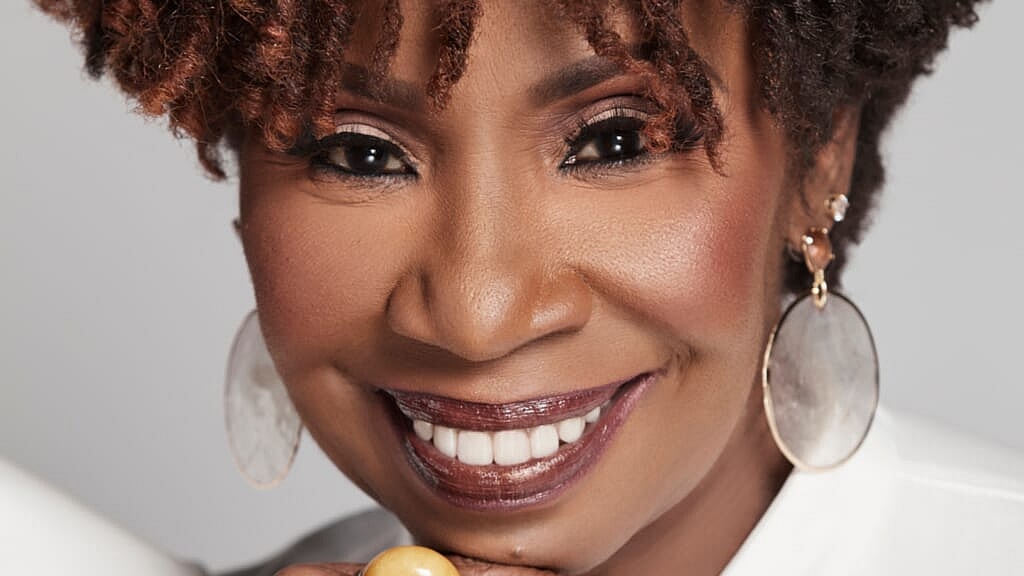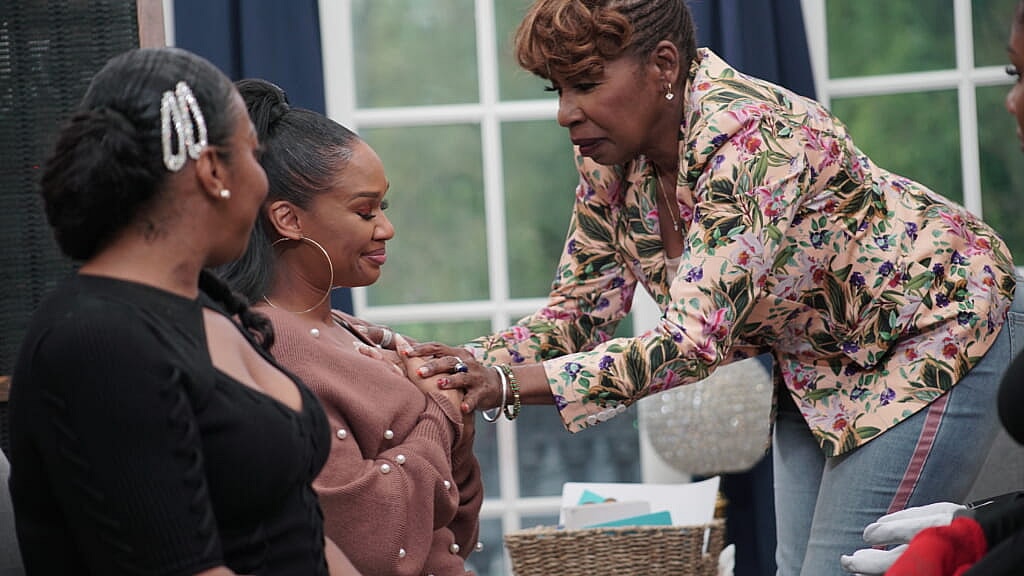Iyanla Vanzant has been a teacher, a healer, an author, and for the last decade, the host of her OWN show, Iyanla Fix My Life. But this season, the show will air its final episode on May 22 with a two-hour special paying tribute to her work.
Read More: This CEO got her foot in the door and landed on Oprah’s ‘Favorite Things’ 7 times
Throughout the years, Vanzant, a four-time NAACP Image Award winner and a six-time New York Times bestselling author, has become known for addressing dysfunction and toxicity in both celebrities and ‘regular’ folks alike.
She’s worked with reality star Evelyn Lozada, hip-hop artist Mickey “Memphitz” Wright, model/actress Karrueche Tran, actress Maia Campbell, lottery winner Marie Holmes, and the late DMX, who had a famously contentious session with Vanzant in 2013.
Just recently, Vanzant, 67, tried to help LisaRaye work on her family’s generational trauma. The actress hoped to get clarity on the challenging relationships she had with her daughter and her mother, both of whom were living with her during the start of the pandemic.

Vanzant’s route to OWN Network was facilitated by Oprah Winfrey, who she says asked her three times to be on the show before she agreed to do it. Vanzant was a longtime guest on The Oprah Winfrey Show until a falling out between the two when Vanzant chose to do a show on another network.
They didn’t speak for over a decade until Vanzant appeared again as a guest on the Oprah show to discuss the turn in their relationship, which lead to public healing between the two.
“Sunsetting the series is bittersweet,” Winfrey said in a statement. “I’m very thankful for her and the work she does and look forward to what unfolds next from her gift of teaching people to be better versions of themselves.”

We talked to Iyanla recently about her future, the show’s legacy, and how to find healing in the face of all that’s happened in the last year.
theGrio: How do you feel now that this stage of your life is coming to an end?
Iyanla Vanzant: You know, I never thought about it as the end. I always think about it as a beginning. I am complete. I’m complete. You know, when you’re complete, it’s not like a divorce where we got to divide things up. The property owner is still there. I’ve got that legacy of work that will continue to be available to support people. I never thought of it as an end. It’s just like, OK, this is what’s next. This is what I need to do.
And what happens in this next beginning for you?
I hadn’t planned to do Fix My Life, you know, I was doing Masterclasses, life classes, and Ms. Winfrey offered me the opportunity. And my first response was I said, ‘No, no, thank you. But when Oprah Winfrey tells you three times you need your own show, I guess you better listen. So I didn’t plan that, and I don’t have to plan what’s next. I know that it will unfold. And it is; it’s unfolding.
While we are processing your departure, what can you tell us about the void that’s now opened up? Where do we go for our emotional sustenance?

Well, you can come study with me. I’m teaching all of the time. I’m getting ready to do Releasing the Trauma of Sexual Abuse, online. You know, the pandemic really gave us a whole ‘nother way to connect and we’re using it.
I really believe that within the next three to five years, there’ll be five different versions of Fix My Life because Fix My Life created a new genre of television I’d really like to see Fix My Children. I think Fix My Life opened the door and many people are going to walk through it, and they don’t need to be walking over me. They need to come in and do it the way they do it.
You’re from the generation where people didn’t talk about anything, now everybody talks about everything. Are we still out of balance, though? Is it a little bit too much?
It all depends on why we’re talking, you know, divorcing on Facebook and calling you out your name on Instagram is not the kind of talking that we want to proliferate. But I do think it’s healthy.
One of the things Fix My Life did was make the unspeakable speakable and the unforgivable forgivable. And it took people out of the secret closet of their suffering and put the issue squarely in front of their faces. And if they use the tools or the information, they could experience an alleviation of their suffering.

You talked about secrets. Is that the place where you think that we are most wounded?
People just don’t tell the truth. People are not accountable for their behavior, their thoughts, their feelings. People are irresponsible. So we have to tell the truth. And that’s what the universe is showing us. All of this violence that we see, the sexual irresponsibility, the sexual violence, the racial disparity, it’s really the fall of white male superiority. So my desire is to give people just some skills and tools so that no matter what happens next, they’ll be OK.
What can you tell us about holding our collective grief, because, in 2020, we obviously dealt with that, whether it was grieving a loved one lost to COVID, or victims of police brutality like George Floyd?
Well, I hope we don’t hold it. Grief is a natural, normal process. Grieving is good. I want us to grieve. I don’t want us to mourn because mourning is where we get stuff that says this shouldn’t have happened. And because it happened, I can no longer do this.
Grieving is, ‘I’ve experienced the loss and then I give myself permission to move through the process. I’ll be OK on the other end.’ So I don’t want us to hold our grieving. I want us to talk about it and allow it to unfold, and find healthy ways to express it.
Read More: Derek Chauvin murder trial could be the verdict of a generation
Most people know you through Fix My Life. But you have written a tremendous number of very, very helpful books. So for people who are experiencing any void from the show, where would you start with one of your books?
While there are people who [appreciate] “Value in the Valley,” there are people that don’t even know that book exists. So in this day and age, I would say [the book] “Get Over It.” And the reason I say that is because it gives you tools that you can use. We have to take responsibility for our own healing and evolution.
It is taught there how you can change your mind so you can change your life. So I would tell people to start there, and then I would say “Acts of Faith.” That classic would be my recommendation.
Check out the full interview with Iyanla Vanzant above.
Have you subscribed to theGrio’s new podcast “Dear Culture”? Download our newest episodes now!
TheGrio is now on Apple TV, Amazon Fire, and Roku. Download theGrio today!

